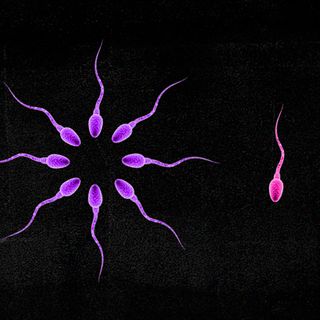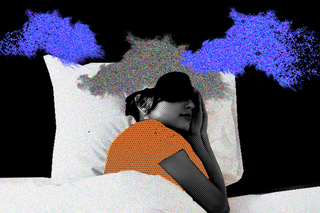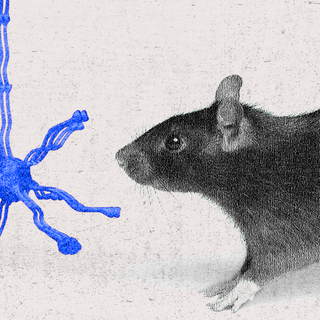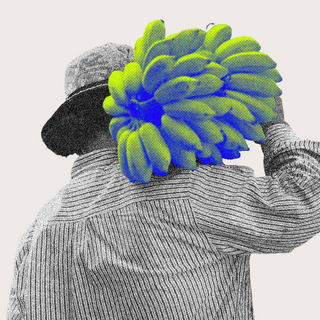
Can We Erase Traumatic Memories?
The science is still in its early days, but tweaking or removing traumatic memories could be a paradigm shift in treating PTSD.

Playing sounds while a person is asleep has been known to strengthen memories. Now, researchers at the University of York have made a startling discovery — the same method can also help people forget specific memories. Though the research is still in its early stages, the authors of the study say this finding holds thepotential to aid in the development of techniques that could, one day, weaken traumatic memories.
The persistent nature of trauma-induced memories causes immense suffering and can manifest differently, in a range of emotional and behavioral responses. In its most extreme form, exposure to a distressing event can lead to the development of post-traumatic stress disorder (PTSD), a mental health condition accompanied by a combination of symptoms that include flashbacks, anxiety, nightmares, and fearful thoughts. Over the years, scientists have been working on finding a cure forthe stress caused by haunting memories borne of painful events. This research has taken many forms, with the latest experimental study adding to a growing body of knowledge that is trying to address a pressing question: is it possible to erase memories?
The latest study, published in the journal Learning and Memory, suggests sleep is a crucial factor in the possible weakening of selective memories. The researchers used word associations to study the links between memory and sleep in a small sample size of 29 individuals. The participants were shown pairs of words, one an object, while the other was a place or person, for example: “hammer — office” and “hammer — Cardi B.” The participants were asked to learn this pairing, for a set of 120 associations — following which, they spent their night at a sleep lab, where their brainwaves were monitored and the audio of the object word (“hammer”) was played at a specific sleep stage.
When participants were tested on word associations the next day, the results were thus: playing the audio for the object word while the participants slept, boosted their memory of the first word they had learned to pair with the object. However, their ability to recall the second word associated with the object decreased, as compared to when the audio was not played. Based on the results, the researchers suggested it might be possible to cause selective forgetting by playing associated sounds during sleep.
Related on The Swaddle:
Study: The Likelihood of Developing PTSD Following Trauma Is Partly Determined by Genetics
“The relationship between sleep and memory is fascinating. We know that sleep is critical for memory processing, and our memories are typically better following a period of sleep. The exact mechanisms at play remain unclear, but during sleep, it seems that important connections are strengthened and unimportant ones are discarded… This research raises the possibility that this process could be manipulated so that sleep could be used to help weaken painful memories,” said co-author Aidan Horner.
However, the researchers cautioned that this was an “early-stage discovery,” with further research needed to understand how these sound cues cause one to forget, and whether this technique might show results in weakening real-world memories too. Bardur Joensen, the study’s first author, said, “Although still highly experimental at this stage, the results of our study raise the possibility that we can both increase and decrease the ability to recall specific memories by playing sound cues when an individual is asleep… People who have experienced trauma can suffer a wide range of distressing symptoms due to their memories of those events… [O]ur discovery could potentially pave the way to new techniques for weakening those memories that could be used alongside existing therapies.”
Trauma treatment usually takes the form of trauma-focused therapy, considered the best available treatment for PTSD. However, PTSD is also known to be notoriously resistant to treatment. A report in Scientific American stated that two-thirds of those living with PTSD do not respond to themost common treatments.
Our recall of traumatic events can affect our lives, including work performance and social relationships in the family and larger community, to a great extent. Finding a treatment with a high response rate,then, becomes imperative, especially given the high prevalence of PTSD. And so, a range of possible suggestions have been made: the illegal drug MDMA coupled with extensive therapy was found to be effective; a non-invasive technology that used acoustic stimulation to resonate with brain frequencies showed a significant reduction in PTSD symptoms in veterans; a peptide was created to disrupt a protein complex found to be elevated in PTSD patients, proving effective in preventing the recall or encoding of fear-based memories in a preclinical trial.
Related on The Swaddle:
New Evidence Supports the Use of MDMA – the Drug in Ecstasy – in PTSD Treatment
Considerable research efforts have also been directed toward understanding how memories form, and whether it is possible to erase deeply embedded memories. In 2020, a study showed that long-term memory (LTM) of a distressing event could be erased by keeping the subject in the dark, after which the first exposure to environmental light modified the retention of LTM. They demonstrated this by pinpointing the specific molecular mechanism due to which light affects LTM.
Back in 2017, researchers found that different types of memories stored in the same neuron could be erased in a marine snail — opening up possibilities of developing drugs that might erase the memories that trigger anxiety or PTSD without affecting others.
Earlier this year, too,researchers had found that inhibiting a key enzyme that regulates long-term fear memories in rodents reduced their ability to form long-term memories of frightening events. This revealed the possibility of developing a future drug that, when used in the hours after a trauma-inducing event, could block or weaken the formation of a fear-based long-term memory.
All these studies are, admittedly, in the early stages of development and highly experimental. Whether they could be the basis for potentially developing techniques to tweak memories remains to be seen, following substantial testing that can successfully establish their effectiveness in humans.
What these preliminary findings do reveal, though, is that altering or completely erasing memories is no longer the sole domain of science fiction, but could very well be a possibility in the future — one that could change the course of how we treat trauma.
Ananya Singh is a Senior Staff Writer at TheSwaddle. She has previously worked as a journalist, researcher and copy editor. Her work explores the intersection of environment, gender and health, with a focus on social and climate justice.
Related


Human Neurons Were Transplanted Into Rats to Study Brain Disorders. Is It Ethical?
